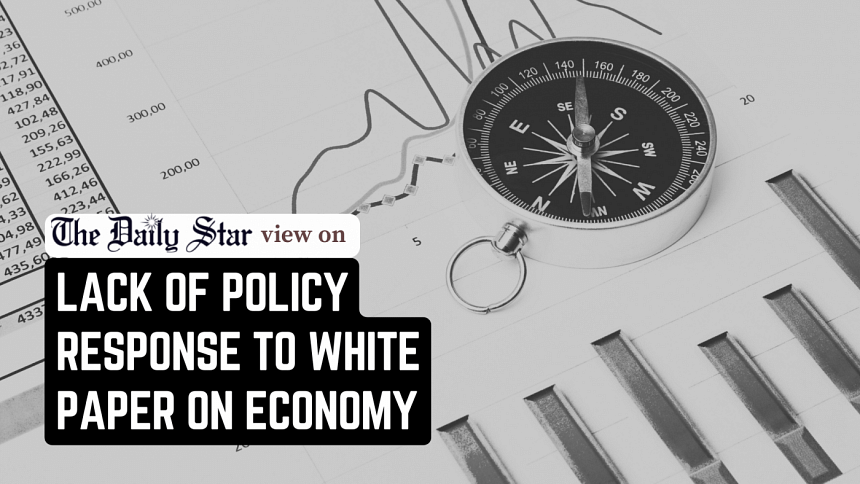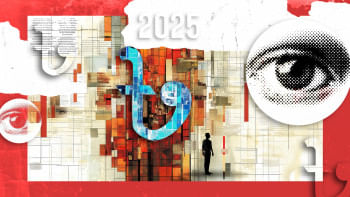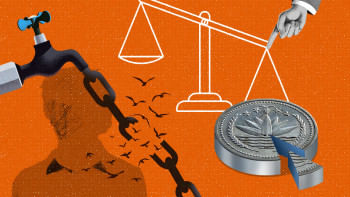What was the point of a white paper on economy?

It is frustrating to know that more than a month and a half after the submission of the white paper on Bangladesh's economy, the government has yet to take steps based on its recommendations. This inaction—pointed out by the very man who led the 12-member committee that prepared what Chief Adviser Prof Yunus then called a "historic" document worthy of being taught in universities—not only questions the rationale for commissioning such a report but also risks deepening the present economic crisis. At a recent symposium, Dr Debapriya Bhattacharya also lamented the lack of critical discussions on this issue.
True, our economic problems did not emerge overnight, nor can they be resolved by the interim government alone. These issues stem from years of mismanagement, entrenched corruption, and systemic regulatory failures, particularly during the Awami League's 15-year rule. The 30-chapter, 400-page white paper—submitted on December 1—unearthed the scale of these problems in exhaustive detail. For instance, it revealed that a staggering $234 billion was laundered from Bangladesh between 2009 and 2023. Meanwhile, distressed assets in the banking sector soared to Tk 6,75,030 crore, leaving banks under-provisioned and vulnerable to financial shocks. At the stock market, trillions of taka were embezzled through fraud, manipulation of placement shares, and deceitful Initial Public Offering (IPO) processes.
The report attributed these regulatory failures to the influence of business conglomerates, bureaucrats, and politicians, showing how laws and regulations were "tailored and retrofitted" to serve vested interests. It also exposed the dire state of "technically bankrupt" and "illiquid" banks and how Bangladesh, lost in a data fog, "sleepwalked" into the middle-income trap. Beyond banking and financial mismanagement, the white paper also offered an in-depth review of the macroeconomic and fiscal situation, alongside key sectors like education, health, energy, taxation, mega projects, poverty, and inequality. The question is: what is the government doing about its recommendations?
Among its key proposals, one was to establish an independent prosecution body to pursue follow-up actions on the stolen funds. The committee also urged the government to formulate a two-year mid-term economic plan and a six-month short-term strategy. Yet, there is no indication that these recommendations are being taken seriously. Instead, despite the paper's critical assessment of the existing tax regime, the government has opted to raise value-added tax (VAT) and supplementary duty (SD) on over 100 products and services rather than boosting direct tax collection—suggesting a preference for short-term fixes over structural reforms. Equally concerning is the continued ad hoc approach to banking and energy sector reforms.
This has to change. We urge the government to take ownership of the white paper's findings and incorporate them into policy decisions. Given the enormity of our economic challenges, it must make the most of its limited time before elections to lay the groundwork for reforms while establishing discipline in macroeconomic management, as Prof Rehman Sobhan suggested at the symposium. The importance of phased, strategic action cannot be overstated.


 For all latest news, follow The Daily Star's Google News channel.
For all latest news, follow The Daily Star's Google News channel. 











Comments